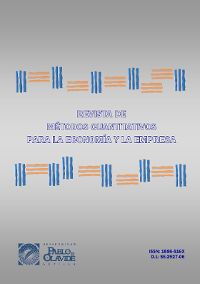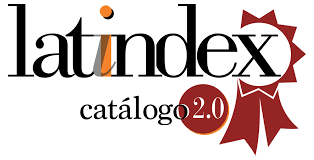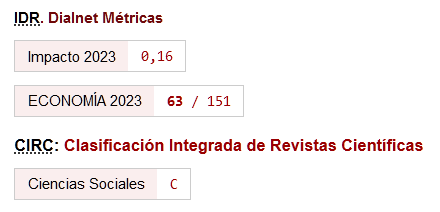Evaluación del impacto económico y social de la celebración de grandes eventos deportivos a nivel local: el caso del Campeonato de Tenis femenino de la ITF en Sevilla en 2006
DOI:
https://doi.org/10.46661/revmetodoscuanteconempresa.2063Palabras clave:
Impacto económico y social, eventos deportivos, análisis coste-beneficio, análisis input-output, administración local, social and economic impacts, sporting events, cost-benefit analysis, input-output analysis, local administrationResumen
La importancia del deporte en el mundo actual ha trascendido al ámbito social, económico e, incluso, político, por encima de lo relativo meramente a su práctica. La celebración de grandes eventos deportivos se ha convertido en toda una fuente generadora de beneficios directos, y también inducidos, allá donde se celebran. Por esta razón, los poderes públicos y económicos pugnan por la organización de este tipo de eventos en sus ámbitos geográficos de influencia. Sin embargo, los estudios de impacto de estos beneficios en muchas ocasiones aparecen sobrevalorados, influidos por los intereses de los agentes implicados. El presente trabajo ofrece una metodología para evaluar el impacto económico y social de la celebración de grandes citas deportivas a nivel local. Entre las principales ventajas que ofrece están su transparencia y la independencia de su realización, al provenir de un grupo de trabajo ligado a la Universidad. Como ejemplo práctico de aplicación, se ha considerado la celebración del Campeonato de Tenis femenino de la ITF celebrado en Sevilla en octubre de 2006, dentro del Circuito WTA.
Descargas
Citas
Baade, R.A. y Matheson, V.A. (1999): “Assessing the economic impact of the Summer Olympic Games: the experience of Los Angeles and Atlanta”. Conference Proceedings of the International Conference on the Economic Impact of Sports, Athens, Greece, pp. 7-24.
Baade, R.A. y Matheson, V.A. (2000): “An assessment of the economic impact of the American football”, Reflects et perspectives, Vol. 34, No. 2-3, pp. 35-46.
Baade, R.A. y Matheson, V.A. (2001): “Home run or wild pitch? Assessing the economic impact of Major League Baseball’s All-Star Game”, Journal of Sports Economics, Vol. 2, No. 4, pp. 307-327.
Fundación Andalucía Olímpica (2001): Impacto Económico y Social del Deporte en Andalucía. Sevilla: FAO.
Instituto de Estadística de Andalucía (1999): Sistema de Cuentas Económicas de Andalucía. Marco Input-Output de Andalucía 1995. Sevilla: IEA.
Instituto de Estadística de Andalucía (2007a): Municipios andaluces. Datos básicos. Sevilla: IEA.
Instituto de Estadística de Andalucía (2007b): Encuesta de Coyuntura Turística de Andalucía. Sevilla: IEA.
Lee, S. (2001): “A review of economic impact study on sport events”, The Sport Journal, Vol. 4, No. 2, Spring. Accesible en: http://www.thesportjournal.org/2001Journal/Vol4-No2/economic-sports.asp
Matheson, V.A. (2002): “Upon further review: an examination of sporting event economic impact studies”, The Sport Journal, Vol. 5, No. 1, Spring. Accesible en: http://www.thesportjournal.org/2002Journal/Vol5-No1/studies.asp
Miller, R.E. y Blair, P.D. (1985): Input-Output Analysis: Foundations and extensions, New Jersey: Prentice-Hall, Inc.
Pfähler, W. et al. (2001): Regional Input-Output Analysis, Baden-Baden: Nomos Verlagsgesellschaft.
Porras, M.J. et al. (2006): Hábitos y actitudes de los sevillanos ante el deporte. Observatorio del deporte de Sevilla. Instituto Municipal de Deportes. Ayuntamiento de Sevilla. Sevilla.
Porter, P. (1999): “Mega-sports events as municipal investments: a critique of impact analysis” in: Fizel, J.; Gustafson, E. and Hadley, L., Sports Economics: Current Research. Westport, CT: Praeger Press.
Pulido, A. y Fontela, E. (1993): Análisis input-output. Modelos, datos y aplicaciones. Madrid: Pirámide.
Rueda-Cantuche, J.M. y Ramírez-Hurtado, J.M. (2007): “A simple-to-use procedure to evaluate sporting event social and economic impacts on local communities”, International Journal of Sport Management and Marketing. Vol. 2, Nos. 5/6, pp. 510-525.
USA Congress (1936): Flood Control Act, 1936. 74th Congress. Session II. Chs. 651-688. June 20-22, 1936.
Descargas
Publicado
Cómo citar
Número
Sección
Licencia
Derechos de autor 2007 Revista de Métodos Cuantitativos para la Economía y la Empresa

Esta obra está bajo una licencia internacional Creative Commons Atribución-CompartirIgual 4.0.
El envío de un manuscrito a la Revista supone que el trabajo no ha sido publicado anteriormente (excepto en la forma de un abstract o como parte de una tesis), que no está bajo consideración para su publicación en ninguna otra revista o editorial y que, en caso de aceptación, los autores están conforme con la transferencia automática del copyright a la Revista para su publicación y difusión. Los autores retendrán los derechos de autor para usar y compartir su artículo con un uso personal, institucional o con fines docentes; igualmente retiene los derechos de patente, de marca registrada (en caso de que sean aplicables) o derechos morales de autor (incluyendo los datos de investigación).
Los artículos publicados en la Revista están sujetos a la licencia Creative Commons CC-BY-SA de tipo Reconocimiento-CompartirIgual. Se permite el uso comercial de la obra, reconociendo su autoría, y de las posibles obras derivadas, la distribución de las cuales se debe hacer con una licencia igual a la que regula la obra original.
Hasta el volumen 21 se ha estado empleando la versión de licencia CC-BY-SA 3.0 ES y se ha comenzado a usar la versión CC-BY-SA 4.0 desde el volumen 22.










